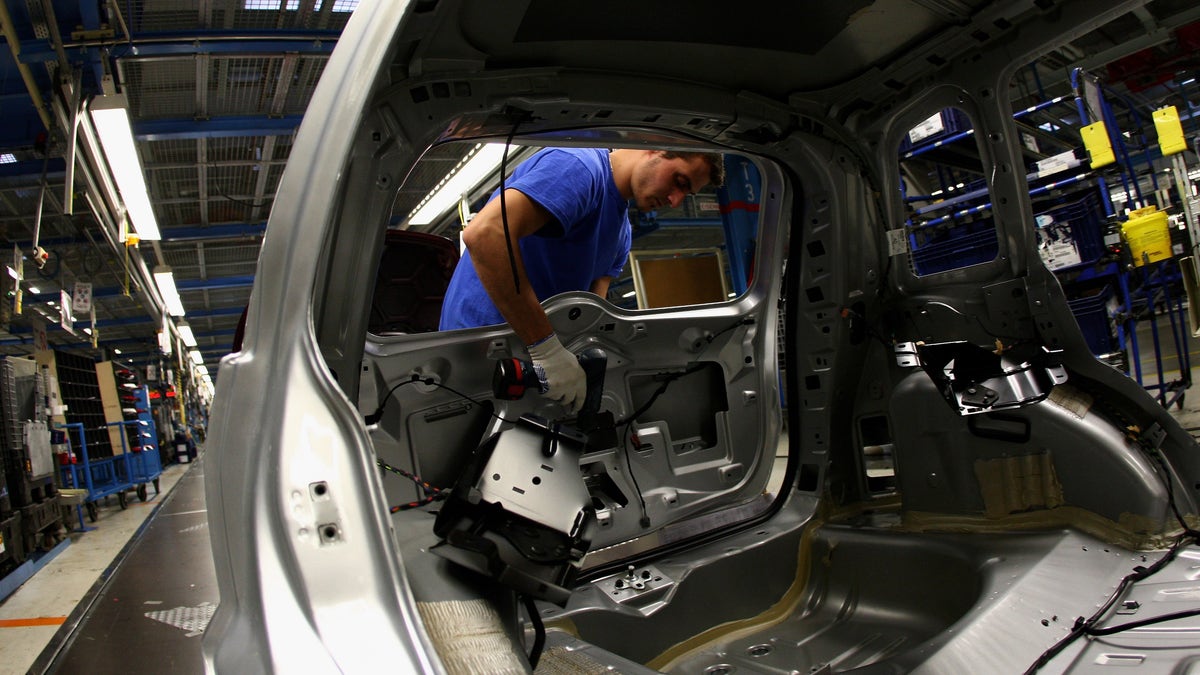
COLOGNE, GERMANY - DECEMBER 04: General picture of a production of the new Ford Fiesta is seen at the Ford Fiesta manufacture in Cologne Niehl on December 4, 2008 in Cologne, Germany. Cologne Ford manufacture has started on August 14 the world wide production of the new generation of Ford Fiesta. (Photo by Vladimir Rys/Getty Images) (2008 Getty Images)
The Venezuelan auto industry is reeling from its worst year ever, 2014. And, in order to recover, they will turn to selling cars in U.S. dollars, the currency of the much-maligned empire.
According to the Auto Chamber of Venezuela (Cavenez), 23,707 new vehicles were sold in the country last year — down from 98,878 the year before.
After a near complete stoppage in early May, the government says Ford will start making cars again in July or August. However, they will come with U.S. dollar price tags.
Ford has been making cars in Venezuela since 1962 and, after several bonanzas, is now making almost as many cars as it did when it all started more than half a century ago. And the unions are only half sold on the idea, instead backing the more regulated approach adopted until now by the socialist government of President Nicolas Maduro.
Ford union chief Gilberto Troya said that although the move does not please him personally, literally thousands of jobs are at stake. “From a nationalist point of view, I disagree. It is sad that it has come to this and this is, if you wish, a loss of sovereignty,” Troya told Fox News Latino. “But there are jobs involved,” he added.
He said selling cars in U.S. dollars is a last-ditch effort that does not entail saving the whole automotive sector, just the plants that can adapt to the measure.
So far this year, less than 8,000 new cars have been sold in Venezuela, which today is home to five automakers only: General Motors, Ford, MMC Automotriz, Chrysler and Toyota.
“There seemingly is no other way out of this. This is basically being done just to keep some plants working,” he said.
According to Troya, the Ford plant in Valencia is producing just 5 percent of what it was putting out just a few years back. “This year, so far, we have produced 1.400 vehicles all told. In 2012 we reached a record of 32.000 vehicles produced a year,” Troya reminisced.
Hundreds of employees at the Valencia facility have been “invited to leave” the company, even as firing people is against the law in Venezuela. “We had 2.500 workers last year, now we are down to 2.300”, said Troya.
A separate problem is a scarcity of greenbacks. The government sells the American currency at 6.3 Bolivars to the dollar, but it has been selling less and less, affecting most sectors and the overall economy. President Maduro said this week that in 2015 Venezuela will receive 50 percent less money from oil, its top export, than it did in 2014.
